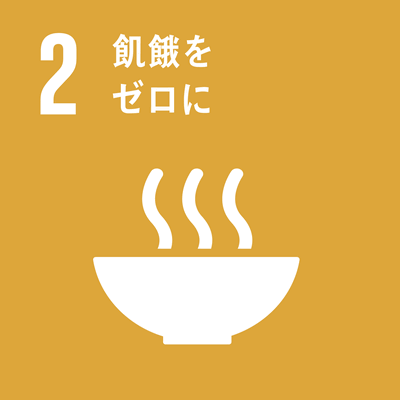シラバス表示
シラバスの詳細な内容を表示します。
→ 閉じる(シラバスの一覧にもどる)
科目の基本情報
| 開講年度 | 2024 年度 | |
|---|---|---|
| 開講区分 | 生物資源学部 | |
| 受講対象学生 |
資源循環学科・全教育コース 学部(学士課程) : 2年次 |
|
| 選択・必修 | 選択 |
|
| 授業科目名 | Introduction to Global Food Security | |
| いんとろだくしょん とぅ ぐろーばる ふーど せきぅりてぃ | ||
| Introduction to global food security | ||
| 単位数 | 2 単位 | |
| ナンバリングコード | BIOR-Reso-3341-006
|
|
| 開放科目 | 開放科目
他学科の学生の受講可 *2年生以上の学生の受講可 |
|
| 開講学期 |
後期 |
|
| 開講時間 |
月曜日 3, 4時限 |
|
| 授業形態 |
対面授業 * 状況により変更される可能性があるので定期的に確認して下さい
「オンライン授業」・・・オンライン会議ツール等を利用して実施する同時双方向型の授業 |
|
| 開講場所 | ||
| 担当教員 | ジャガット クララタナ(特任教員)、タラガラ タランガ(特任教員) | |
| Jagath Kularatne and Thalagala Tharanga | ||
| SDGsの目標 |
|
|
| 連絡事項 | Students are urged to refine their scientific English skills to bolster language proficiency and critical thinking. Consistent attendance, diligent completion of assignments, and active participation are paramount. Those aspiring to deepen their statistical expertise should explore the "Introductory Statistics Part-2" sessions within the "Science English-1" course. * 状況により変更される可能性があるので定期的に確認して下さい |
|
学修の目的と方法
| 授業の概要 | In the 21st century, food security and sustainable agricultural development have emerged as critical global concerns. Advancements in technology, the exchange of research findings, and meaningful dialogues between nations are essential for fostering sustainable agriculture and ensuring food security worldwide. Given that English serves as the primary language of instruction for most international organizations, academic institutions, and multinational agribusinesses, this course is designed to deepen understanding of global food security and sustainable agricultural practices through English medium.The course curriculum covers key topics such as global food security fundamentals, food safety, food production, soil management, climate change, sustainable development, agricultural and environmental economics, and data analysis. By the course's conclusion, students will have acquired both theoretical knowledge and analytical skills in scientific concepts. They will be equipped to propose solutions to global food security challenges and employ scientific English proficiently to communicate their insights effectively. |
|---|---|
| 学修の目的 | To provide fundamentals of global food security, food safety, food production, soil management, climate change, agricultural and environmental economics, and statistical analysis in English medium. To produce ideas in an acceptable written form and extend the vocabulary in English related to the scientific fields mentioned above. To improve communication skills in English by practicing analysis, critical thinking, formal presentations, and discussions. To develop flexible and versatile human resources in this fast globalizing world. |
| 学修の到達目標 | Upon completion of this course, students will be able to: ・Improve the fundamental knowledge of global food security, food safety, food production, soil management, climate change, agricultural and environmental economics, and statistical analysis. ・Follow lectures conducted in English. ・Learn scientific English, extract the required information and write them in formal reports. ・Present scientific information (PowerPoint, poster, etc.) and have constructive discussions in English. ・Involve in national & international research and projects. ・Develop skills to challenge the world without limiting to their own country. ・Find job opportunities both in national and international markets. |
| ディプロマ・ポリシー |
|
| 成績評価方法と基準 | Homework: [40%] Presentation: [30%] in-class activities: [30%] Students must attend more than 70% of the classes to obtain credits. |
| 授業の方法 | 講義 |
| 授業の特徴 |
プレゼンテーション/ディベートを取り入れた授業 グループ学習の要素を加えた授業 Moodleを活用する授業 教員と学生、学生相互のやり取りが、ほぼ英語で進められる授業 |
| 授業アンケート結果を受けての改善点 | In the class, students are encouraged to communicate confidently in English without fear of language errors. The instructors articulate their points deliberately and clearly, ensuring students grasp concepts accurately. Lecture contents may be adjusted slightly to accommodate student proficiency. |
| 教科書 | Details regarding textbooks and supplementary references shall be furnished during the guidance session. Furthermore, digital versions of scholarly materials will be provided as necessary. |
| 参考書 | Notify the students as necessary. |
| オフィスアワー | Students are welcome to consult with teachers either before or after lessons, or alternatively, by scheduling an appointment via email. jagath@bio.mie-u.ac.jp tharanga@bio.mie-u.ac.jp |
| 受講要件 | Nothing in particular. |
| 予め履修が望ましい科目 | Nothing in particular |
| 発展科目 | Nothing in particular |
| その他 |
授業計画
| MoodleのコースURL |
|---|
| キーワード | food security, soil, climate change, agroforestry, agricultural economics, statistics |
|---|---|
| Key Word(s) | food security, soil, climate change, agroforestry, agricultural economics, statistics |
| 学修内容 | Reading lessons use agriculture, forestry, biology, ecology, and economic documents. Students should read and comprehend the given passages (intensive reading) and explain the content in English. Writing lessons ask students to prepare short reports based on their lecture notes or information from other sources such as the internet, textbooks, or research papers. Students must answer the given assignments. Communication lessons are conducted as group presentations that include 3~5 members per group. Each member should present for around fifteen minutes, and the audience's students should participate in Q&A sessions. 第1回:Guidance (lesson structure, evaluation, etc.), introduction to global food security, and food production. 第2回:Principals and issues of global food security, the importance of agricultural and environmental economics. 第3回:Climate change impact on food security, agroforestry as a solution, climate and food security data, data analysis methods. 第4回:Introductory statistics for life sciences (part-1): description of samples, populations. 第5回:Description of samples, populations. 第6回:Probability and the binomial distribution 第7回:Presentation and discussion-1 (in English). 第8回:Presentation and discussion-2 (in English). 第9回:Introduction to food safety: the importance of outbreaks and strategies to ensure food. 第10回:Food trend in Japan:food self sufficiency, food consumption, Food education (shokuiku), situation of food industry in Japan. 第11回:Greenhouse horticulture: types, modern technologies, comparison with outdoor agriculture. 第12回:Soil and land conservation: problems related to the poor soil management and modern techniques to protect the top soil. 第13回:Video clip-based lecture: Importance of agriculture in arid regions of the world to solve the food crisis. 第14回:Presentation and discussion-3 (in English). 第15回:Presentation and discussion-4 (in English). 第16回:No end-semester examination. |
| 事前・事後学修の内容 | Conduct both pre- and post-study activities for each session. <Pre-study: 120 minutes> Prepare to deliver presentations and engage in basic English discussions. Thoroughly read and comprehend the assigned materials beforehand. Expect occasional quizzes to review prior lessons, necessitating thorough revision. <Post-study: 120 minutes> Actively participate in class discussions. Take initiative in addressing unfamiliar words or expressions encountered during class, and commit them to memory through review. Dedicate time for independent practice to enhance comprehension of English conversation. |
| 事前学修の時間:120分/回 事後学修の時間:120分/回 |


